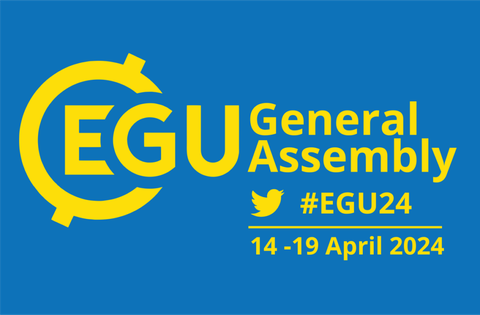Apr 30, 2024
EGU 2024 - The Junior Professorship in Environmental Remote Sensing was there

EGU24 logo
Vienna, the home of Klimt, Freud and Strauss was once again the host of the European Geosciences Union (EGU) General Assembly. It is there that during the 15-19th April scientists from across Europe and the globe attended and presented their research in all fields of geoscience, from the study of penguins in the Antarctic through to planetary physics, and the Junior Professorship of Environmental Remote Sensing from TU Dresden was no exception. Five members of the Junior Professorship travelled down to the banks of the Danube to present their latest findings and research. From the regional to global scale, TUD’s own, addressed some of the key questions facing society and environment. It’s not often you can present to so many fine minds and the team grasped the opportunity with both hands.
PhD student Eric Kosczor presented his work related to landscape change using the historical Corona spy images from the 1960 & 70’s (Link). Christopher Marrs presented the group’s findings about the 2022 wildfire in the Bohemian-Saxon Switzerland and issues surrounding the severe and rapid changes to Saxony’s landscape as a result of the bark-beetle outbreak (Link). At the wider scale, Lucas Kugler provided an insight into the question of reliability and confidence of predictions using Deep Learning, focusing on forest canopy height and the GEDI instrument aboard the International Space Station (Link). Next up were two presentations arising from the Sense4Fire project funded by the European Space Agency. The first of which was by Daniel Kinalczyk, also a PhD candidate, who presented his Masters research demonstrating how Sentinel 5-p can be used to identify and describe wildfire emission plumes (Link). Matthias Forkel presented the second contribution related to Sense4Fire regarding quantifying fuels, combustion dynamics, and regional fire emissions in the Amazon and Cerrado. This work, carried out in collaboration with the Royal Netherlands Meteorological Institute and BeZero is an important aspect of understanding the contribution of fires in these regions to the global carbon cycle (Link).
All agreed that despite long week, it was a worthwhile experience. Next year will be here soon enough and provide us with the opportunity once again to share our research in Vienna, though perhaps not about penguins.
